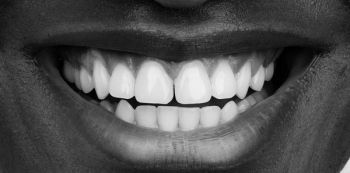
In personal finance, the "latte effect" is shorthand for daily, frivolous expenditures that sneak up on you over time. If you just stop buying triple caramel lattes at Starbucks every afternoon, you can save "x" each year. And if you choose to invest those funds, you could earn "y" each year instead.
The same is true of pretty much anything that's addictive, relatively cheap, and easy to get your hands on — cigarettes and afternoon chocolate bars, and, of course, alcohol. If you drink three days a week, and have an average of two drinks at each sitting, at $9 a drink, you're spending $234 a month on alcohol. If you tend to binge drink — which means four or five drinks per sitting for women and men respectively — that number is $468 or $585.
But alcohol and lattes are not exactly apple-to-apple comparisons. Studies show that drinking, especially binge drinking, can lead you to damage your finances in other, less obvious ways.
Here, a few examples:
Beer goggles
In the same way a few drinks can make you freer about who you're willing to socialize with, a heavy buzz can lower your standards about what you're willing to buy. And when you're at a bar, that often means more drinks — for yourself, your friends, and that group of strangers in the corner who look like they had a long week. Before you know it, you spent your $585-a-month drinks tab in one, drunken night.
Psychologists say the same is true if you're drinking at home while surfing the internet or watching late-night TV. Admiring a set of carving knives can easily turn into owning them if you happen to be tipsy.
Work productivity
In a 2011 paper about the economic effects of heavy drinking, the European Alcohol and Health Forum explains that binge drinking throughout a person's lifespan has a variety of impacts on economic productivity. Studies show that early in life, binge drinking can impact a person's performance in school, while late in life, it can impact how long they can stay in the work force because of health problems and early death.
But binge drinking takes its toll on the middle phase, too: Studies have shown that heavy alcohol use increases not only absenteeism, but also "presenteeism," the act of showing up at work sick.
It turns out that presenteeism is bad for productivity, and therefore bad for a company's bottom line. It stands to reason that absenteeism and presenteeism over time has an impact on the drinker's career, and therefore finances, as well.
Medical expenses
Heavy drinking suppresses the immune system, increasing the risk of common sicknesses like pneumonia, as well as cardiovascular illnesses, cirrhosis, pancreatitis, cancer, and many shades of random injuries. Naturally, more visits to the doctor translates to higher medical bills, and higher health insurance for the drinker.
But it doesn't end there. Drinkers and nondrinkers alike feel the impact of binge drinking on tax day, as well. The Center for Disease Control found that binge drinking costs the U.S. $171 billion a year, mostly thanks to health care costs, and costs related to worker productivity.
Debt
The link between drinking and debt is not entirely clear: Do people who drink more tend to rack up more debt, or do people with more debt tend to drink more to manage their stress? It's hard to say, but a study published in the Internet Journal of Mental Health showed that high credit card debt — a drain on anyone's finances — is positively associated with high risk drinking in college students.
View this article on TheWeek.com Get 4 Free Issues of The Week
Comments (0)
📌 By commenting, you agree to follow these rules. Let’s keep HowweBiz a safe and vibrant place for music lovers!












